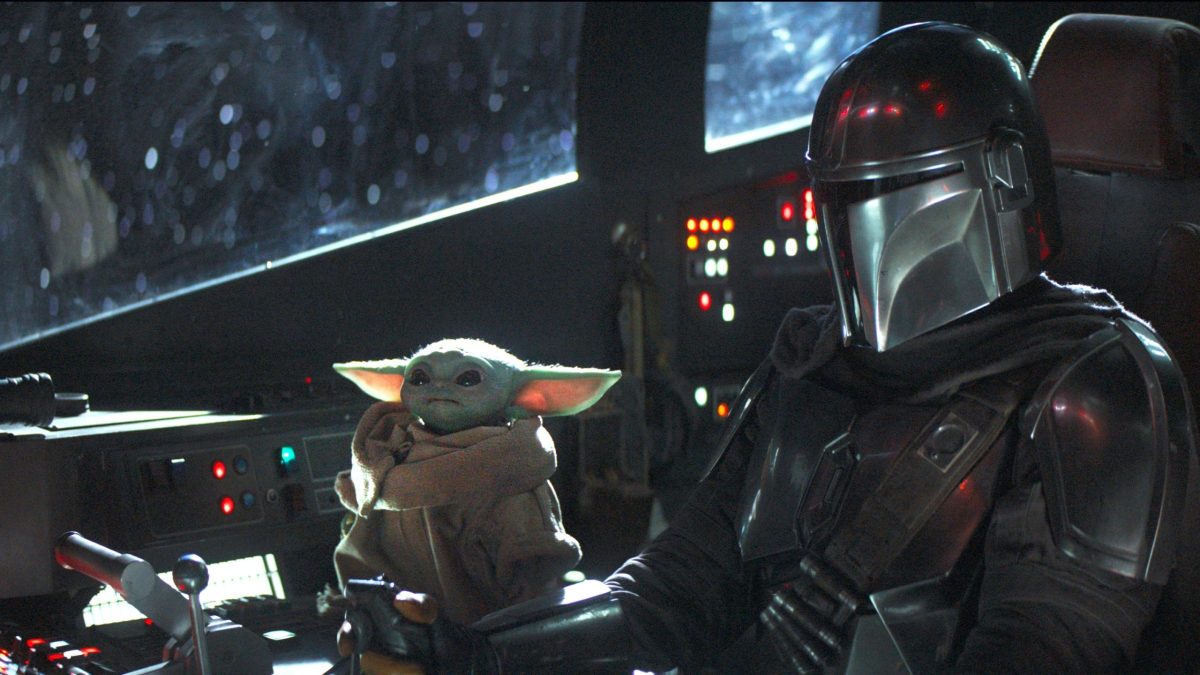The streaming wars are just heating up, and it seems like streaming television’s final form is yet to be determined.
Streaming television is a young medium. It only really began six years ago, with the release of House of Cards on Netflix. The launch was notable for a number of reasons; it was a prestigious big-budget adaptation of a beloved British television series, involved David Fincher, and starred Kevin Spacey. However, it was most notable for how it was released, with every episode releasing simultaneously.
This represented a massive shift in how television was released and consumed. The traditional model relied on the weekly release of episodes during an established broadcast season. Those shows were broadcast at a particular time on a particular weekday. If the show was popular and long-lived enough, it could then be sold into syndication, broadcasting five nights a week at a set time.
Although Netflix would occasionally release series to that old-fashioned schedule, the bulk of its releases followed the House of Cards model. Every episode of a given season of Orange Is the New Black or Daredevil or Stranger Things arrived simultaneously. Certain shows even took advantage of the form; the fourth season of Arrested Development was designed to be watched in any order.
When Amazon Prime emerged as Netflix’s primary business rival, it adopted a similar approach. Barring the pilot, entire seasons of Bosch and The Man in the High Castle dropped simultaneously. Again, there were still exceptions to this model like The Grand Tour, but those were often dictated by international distribution agreements with companies adhering to the traditional model.

Of course, several of the smaller streaming services that emerged from the shadow of Netflix and Amazon Prime tended to adhere to the more traditional weekly release schedule. CBS All Access released The Good Fight and Star Trek: Discovery on a week-to-week basis. Hulu released three episodes of The Handmaid’s Tale up front but then returned to a weekly broadcast schedule.
For these smaller streaming services it was a pragmatic choice. After all, CBS All Access and Hulu did not have the same reservoirs of content that buoyed tech companies like Netflix and Amazon. Releasing a popular show like Star Trek: Discovery weekly ensured that viewers would pay several months’ subscription to CBS All Access instead of binging content on a free trial.
However, recent developments have suggested that there may be a swing back to more traditional release schedules. The past few weeks have seen the launch of Apple TV+ and Disney+, two services with the capacity to go toe to toe with Netflix and Amazon. In particular, Disney+ has huge reservoirs of content to lure potential customers away from its rivals, and to hold them.
Apple TV+ released the first few episodes of See, The Morning Show, Dickinson, and For All Mankind as teasers, but subsequent episodes will be released on a weekly basis. The first episode of The Mandalorian was released on the launch of Disney+, with subsequent episodes on a Friday – with the exception of the one corresponding with The Rise of Skywalker, which will be moved to Wednesday.
This is an interesting development. The transition towards the House of Cards release model wasn’t just about distribution. It didn’t just change the way that these stories were consumed. It also changed the way that stories were told. It is a cliché to describe a series as a “novel for television,” but this was arguably close to true for a lot of these shows.

The tendency to treat these seasons as 8-to-13-hour movies presented its own challenges. Television critics fretted about the death of the episode as a unit of storytelling, as it became harder to tell one installment of Luke Cage from another. The phrase “Netflix bloat” entered the lexicon to describe the padded middle section where these shows often entered elaborate holding patterns. There was a minor backlash against the idea of episodes with extended runtimes.
There are reasons why the binge release model might encourage looser and indulgent storytelling. Viewers consuming these shows in large chunks are likely to be more forgiving of poor pacing and less expectant of the rigid structure of individual episodes. Even streaming executives seemed to acknowledge these formal concerns, such as Netflix VP of Original Programming Cindy Holland.
There’s arguably something to be said for the Darwinian logic of the traditional weekly release schedule. It’s not enough to grab the audience’s immediate attention; it is important that the material is strong enough to maintain that attention. As the heightened attention economy causes media cycles to move faster and faster, there’s a lot to be said for the ability to hold an audience.
The weekly model allows for the audience to continually assess what they are consuming, rather than indulging reflexively. As Netflix’s Chief Content Officer Ted Sarandos remarked of Succession, “If I liked the show a little bit less I’d probably burn out on it. Because I get aggravated every week waiting for the next episode.” It’s good enough that he keeps watching.
The binge model is designed to slow down judgment and speed up consumption. In that way, it resembles other streaming innovations that treat media consumption as something on which audiences might gorge themselves with minimal opportunity for hesitation: from the “skip intro” and “skip recap” options that jump right into the action, to the “autoplay” feature that keeps feeding the viewer.

However, even acknowledging these legitimate concerns with the streaming release model codified by House of Cards, it is important not to be too conservative or reactionary in these assessments. Like all things, media is constantly changing. Cinema does not mean what it once did, as Martin Scorsese has learned. Perhaps television doesn’t mean what it once did either.
New York Times television critic James Poniewozik once argued that streaming shows were so divorced from the norms and constraints of television that they constituted a new form of media unto themselves. However, a lot of those constraints that defined the traditional television model were a result of broadcasting practices that are increasingly outdated.
Rigid episode lengths were dictated by the need for networks to sell advertising real estate. Fixed season lengths were dictated by the need to set a rigid broadcast schedule. Episodic narratives were intended to make it easier for audiences to drop in and out of syndicated runs. Even fixed broadcast dates were intended for a time when the audience could not control their own consumption.
While there are, understandably, challenges in moving away from that traditional model – which has been honed and refined over decades of innovation and experimentation – it is important not to fear the potential offered by new formats and new approaches, even if there are some teething issues in the early stages. Change is not always bad. It is often just different.

The binge model allows audiences unprecedented control and autonomy in media consumption. The modern world is increasingly hectic, and lifestyles of younger consumers reflect that; more and more young people are working irregular schedules, working longer hours, and taking less free time for themselves. The binge model compensates for that by putting power in their hands.
It also theoretically allows for more ambitious storytelling and structuring, as well as media that can be consumed in a higher density and in greater concentration. The idea of the traditional television auteur is still relatively young, only really breaking into the mainstream within the past two decades. It would be a shame to drift away from this model before it is even explored to its full potential.
It is possible that this swing back towards traditional release schedules and models would undercut the potential for the binge model to develop and grow. It is notable that the experimental non-linear binge-friendly fourth season of Arrested Development was recut and repackaged by Netflix as “Fateful Consequences” last year – a more conventionally structured season telling the same story.
Of course, the future of television probably lies in a flexible model – in some combination of the recognizable traditional weekly distribution with more ambitious approaches to releasing. The great innovation of the streaming age is freedom from long-standing formal constraints. The shape of the future is yet to be determined. Hopefully it will be elastic.






Published: Dec 1, 2019 11:00 am